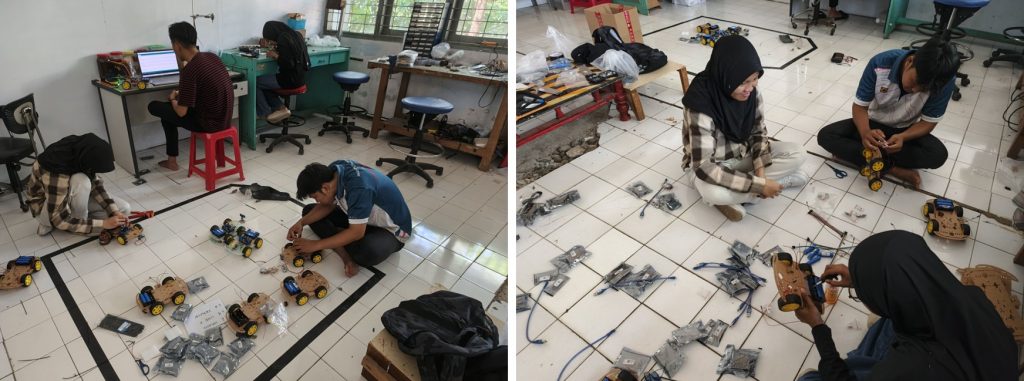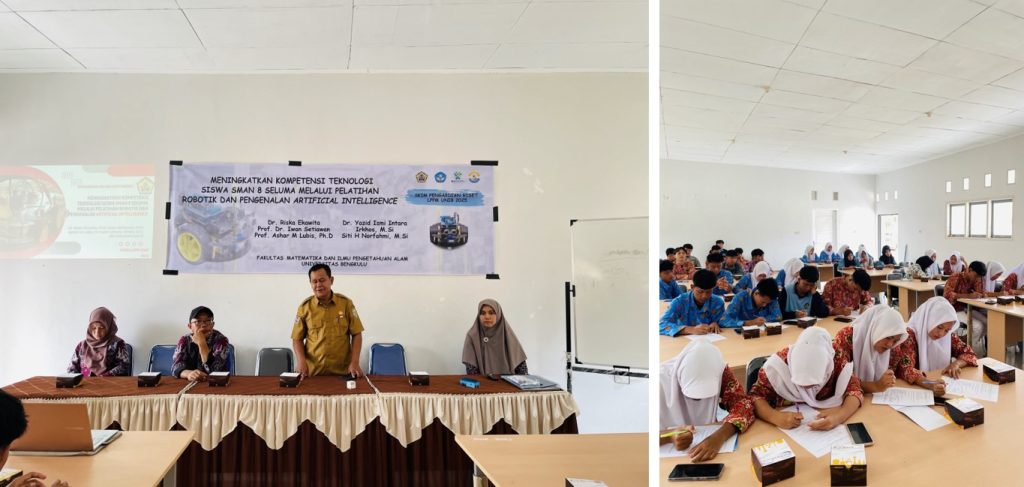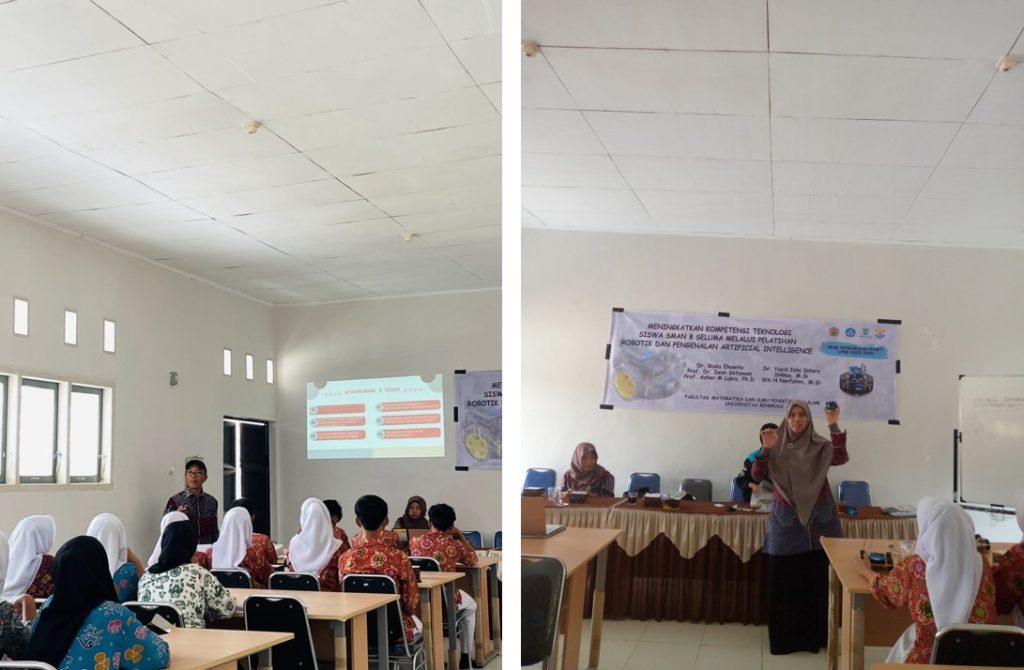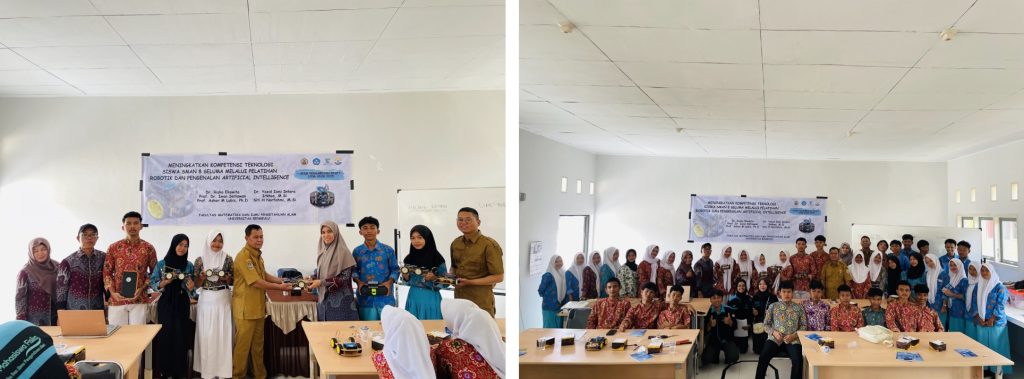
Strengthening Technology Skills through Robotics: A Community Service Collaboration between the University of Bengkulu and SMAN 8 Seluma
The community service program (PKM) entitled “Enhancing the Technological Competence of SMAN 8 Seluma Students through Robotics Training and the Introduction of Artificial Intelligence” was successfully carried out on Tuesday, August 19, 2025. This activity was conducted by lecturers from three study programs (Physics, Faculty of Mathematics and Natural Sciences; Physics Education, Faculty of Teacher Training and Education; and Agricultural Technology, Faculty of Agriculture), namely Dr. Riska Ekawita, Prof. Ashar Muda Lubis, Ph.D., Prof. Dr. Iwan Setiawan, Dr. Yazid Ismi Intara, Irkhos, M.Si., and Siti H. Norfahmi, M.Si., who collaborated to make a tangible contribution in the field of technology education. This PKM team is one of the five recipients of the Research-Based PKM Scheme Funding under UNIB’s PNBP program in 2025.
The PKM program began with an initial coordination meeting between the service team and SMAN 8 Seluma. The meeting, attended by the school principal and a physics teacher, discussed the activity plan, training schedule, required school facilities, and the number of students who would take part in the robotics training.

The next stage of the program was the preparation of robotic equipment at the Physics Instrumentation Laboratory, Faculty of Mathematics and Natural Sciences. The team prepared the basic components of the robots along with the programming codes to be uploaded to each type of robot. On August 19, 2025, the program continued with the official opening of the robotics training at SMAN 8 Seluma, inaugurated by the school principal. Before entering the training session led by the service team, participants first filled out a questionnaire to assess their initial knowledge of robotics and artificial intelligence. The session then proceeded with theoretical material on robotics and AI.

At the core of the program, the service team delivered interactive sessions on the fundamentals of robotics and an introduction to artificial intelligence. The presentation was followed by discussions with the students, helping them to better understand the relevance of technology in everyday life. Student enthusiasm grew even stronger during the hands-on practice session, where they were directly involved in assembling and building simple robotic components. Through this practical experience, the students not only learned key concepts but also sharpened their critical thinking, collaboration, and problem-solving skills


As a form of tangible support, the service team also handed over several sets of robotics kits, including obstacle-avoiding robots, line follower robots, and Bluetooth-based robots, along with the necessary assembly tools. The program concluded with a final questionnaire and a group photo session involving the service team, teachers, and all participants. It is hoped that this activity will spark students’ interest in technology while also giving them the opportunity to practice independently using the robotics kits provided.


